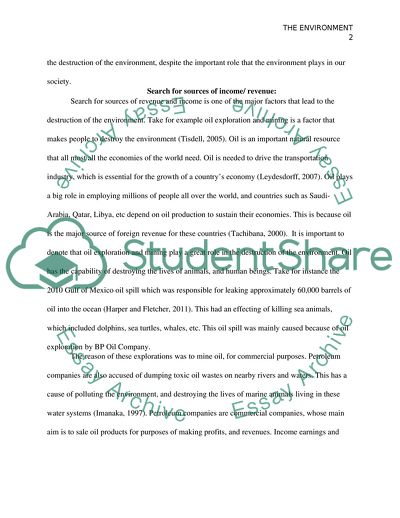Cite this document
(The Destruction of the Environment Essay Example | Topics and Well Written Essays - 1500 words - 1, n.d.)
The Destruction of the Environment Essay Example | Topics and Well Written Essays - 1500 words - 1. https://studentshare.org/psychology/1811216-describe-some-of-the-factors-that-prevent-or-deter-people-from-engaging-in-proenvironmental-behaviours
The Destruction of the Environment Essay Example | Topics and Well Written Essays - 1500 words - 1. https://studentshare.org/psychology/1811216-describe-some-of-the-factors-that-prevent-or-deter-people-from-engaging-in-proenvironmental-behaviours
(The Destruction of the Environment Essay Example | Topics and Well Written Essays - 1500 Words - 1)
The Destruction of the Environment Essay Example | Topics and Well Written Essays - 1500 Words - 1. https://studentshare.org/psychology/1811216-describe-some-of-the-factors-that-prevent-or-deter-people-from-engaging-in-proenvironmental-behaviours.
The Destruction of the Environment Essay Example | Topics and Well Written Essays - 1500 Words - 1. https://studentshare.org/psychology/1811216-describe-some-of-the-factors-that-prevent-or-deter-people-from-engaging-in-proenvironmental-behaviours.
“The Destruction of the Environment Essay Example | Topics and Well Written Essays - 1500 Words - 1”. https://studentshare.org/psychology/1811216-describe-some-of-the-factors-that-prevent-or-deter-people-from-engaging-in-proenvironmental-behaviours.


